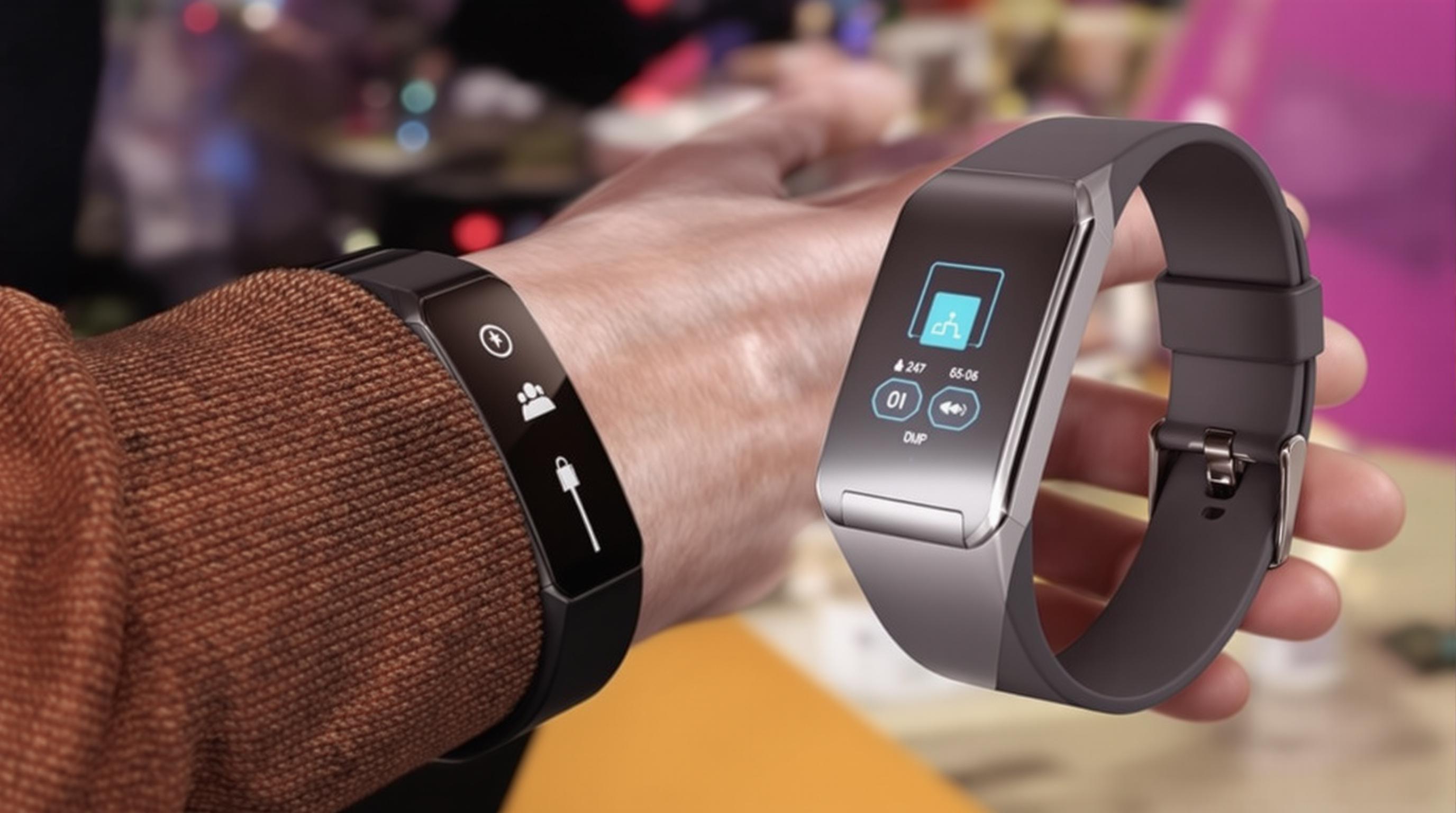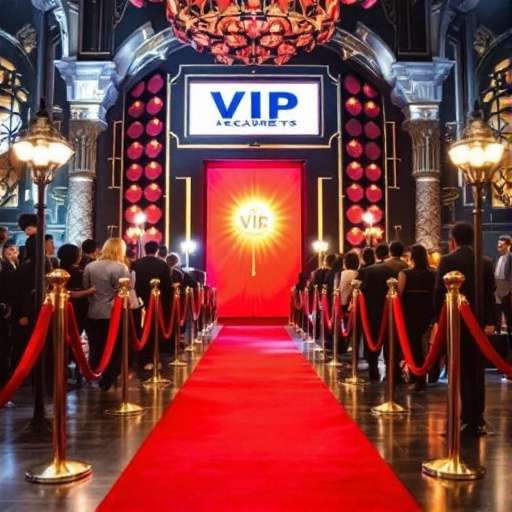Featured Articles
- 9 Game-Changing VIP Experiences You Never Knew Existed That Will Redefine Luxury and Influence Buyer Spending
- Beyond the Velvet Rope: The Rise of Virtual VIP Experiences in a Post-Pandemic World
- The Hidden Allure of VIP Experiences: Why Exclusive Access Could Turn You into a Social Pariah
- Top 6 Cutting-Edge Smart Wristbands for VIP Access and Ultimate Event Control in the Last Five Years
- Unlocking the Secrets of Unconventional VIP Experiences: Beyond the Red Carpet to the Unknown
Beyond the Velvet Rope: The Rise of Virtual VIP Experiences in a Post-Pandemic World
Beyond the Velvet Rope: The Rise of Virtual VIP Experiences in a Post-Pandemic World
As the world slowly recovers from the constraints of the pandemic, the concept of VIP experiences has taken on a new form: the virtual realm. This article explores the shift from traditional in-person exclusivity to innovative online experiences that cater to a global audience while redefining what it means to be a "VIP" in today's interconnected world.
The Evolution of Exclusivity
The term "VIP" (Very Important Person) has long signified a level of exclusivity that came with access to coveted events or individuals. However, the pandemic forced the entertainment and events industry to rethink this exclusivity. With gatherings restricted, brands had to adapt quickly, and thus, the stage was set for virtual VIP experiences.
Statistics Speak Volumes
According to a study by Statista, the global online event market is expected to reach $404 billion by 2027, growing at a rate of 23.2% during 2020-2027 (Statista, 2023). These numbers highlight a definitive shift toward online engagement that caters to a wider audience than ever before, breaking geographical barriers that once defined who could be a VIP.
From Red Carpets to Virtual Rooms
Imagine being whisked away to a virtual gala where you can mingle with Hollywood’s biggest stars from the comfort of your own living room. This is not a fantasy; it's a reality that has emerged in the post-pandemic world. Virtual rooms allow attendees to experience events that were previously limited to a select few.
Case Studies: Brands Leading the Charge
Several brands are already leading the charge in offering virtual VIP experiences. For instance, American Express hosted a series of online "By Invitation Only" concerts featuring top artists like Billie Eilish and John Legend, where cardholders could perform live chat Q&A sessions. This blend of interactivity and exclusivity captured audiences looking for a more personal connection from the comfort of their sofas.
The Secret Sauce: Engagement
But what truly sets these experiences apart? It’s all about engagement. Virtual VIP experiences often include Q&A sessions, exclusive merchandise giveaways, and behind-the-scenes looks at events. For example, at the 2021 GRAMMY Awards, special virtual backstage passes were given to select fans, allowing them an insider's view of rehearsals and celebrity interactions. This type of engagement is deeply valued by younger audiences who crave authentic experiences.
Real People, Real Connections
In an era where social media filters our connections, virtual VIP experiences bring authenticity back into the picture. These platforms allow fans to interact with their favorite artists or experts in real-time, thus breaking down that once impenetrable barrier between them. That live chat with a celebrity can make a fan feel a sense of personal connection that was previously reserved for in-person attendees.
The New Age of Accessibility
As we navigate the complexities of the modern world, it's essential to recognize the increased accessibility gained through virtual experiences. Traditionally, only a select few had the privilege of entering the world of VIP; now, a fan in a small town can reach out to their favorite artist just as easily as someone in Los Angeles.
Why Parents Should be Excited
As a writer who just turned 25, I can tell you that parents should be thrilled about this trend! Virtual VIP experiences often include family-friendly events that might not have been available for their kids in person. Imagine your 15-year-old attending a live-streamed concert with interactive games and giveaways. It's a safe space for entertainment without the hassles of travel and exposure that communities are still cautious about.
A Word of Warning: The Quality Factor
However, caution must be exercised as well. With the rise of virtual events comes the potential for oversaturation. According to a report by the Event Marketing Institute, 70% of participants found themselves overwhelmed by the sheer volume of online events available to them during the pandemic (Event Marketing Institute, 2023). As event creators, it becomes imperative to ensure that the quality and exclusivity of these experiences remain intact amidst rising fatigue.
Humor: Keeping it Light
But let’s face it: virtual experiences aren’t without their quirks. Who hasn’t experienced that painfully awkward moment when your internet freezes while you’re attempting to chat with your favorite celebrity? Or the time you realized your mic was off during a live Q&A, and you looked like a background character out of a comedic sitcom? These moments are what make such events memorable, reminding us that both celebrity and fan are navigating this new normal together.
Community Building
Critical to the success of virtual VIP experiences is the aspect of community building. Events that foster online communities where fans can share their experiences and interact with each other resonate deeply. An example of this is the "PlayStation Together" series, where gamers join live streams and chat in forums, building friendships that transcend their gaming interests.
Future Trends
As we move forward, VR (Virtual Reality) and AR (Augmented Reality) technologies are poised to take virtual VIP experiences to the next level. Imagine putting on a headset and feeling like you're walking alongside your favorite band in their living room, or using AR to create personalized fan experiences right in your own home. A report by PwC suggests that the VR/AR market could generate $1.5 trillion in value by 2030, which could redefine the live-event market once again (PwC, 2023).
Tips for Navigating Virtual VIP Experiences
If you're interested in diving into this brave new world of virtual VIP experiences, here are a few tips to help you maximize your enjoyment:
- Do Your Research: Always check out who is hosting the event, what you can expect, and how interactive it will be.
- Engagement is Key: Take advantage of Q&A sessions and polls, as these interactions can enhance your experience.
- Join Fan Communities: Connecting with others who share your interests can provide additional insights and fun ways to engage.
Back to Reality and Forward to Virtual
As restrictions continue to lift globally, a hybrid model combining physical and virtual experiences seems plausible. Many fans who have enjoyed their digital experiences may be hesitant to revert entirely back to in-person events. Event creators will need to adapt and innovate continuously to meet evolving expectations. Imagine the best of both worlds—an in-person concert where fans can join virtually from anywhere, creating a global audience that celebrates together.
Final Thoughts
Virtual VIP experiences have redefined what it means to be exclusive, breaking barriers and fostering connection in unprecedented ways. Whether through intimate Q&A sessions, interactive live streams, or community building, these experiences cater to an audience starved for authentic connections. In a post-pandemic world marked by uncertainty, we can embrace the growth and potential these new experiences offer.
Embrace the future, because VIP is no longer just velvet ropes and champagne toasts; it’s about bringing people together in ways we never thought possible—and perhaps clumsily laughing together when technology doesn’t quite cooperate!




